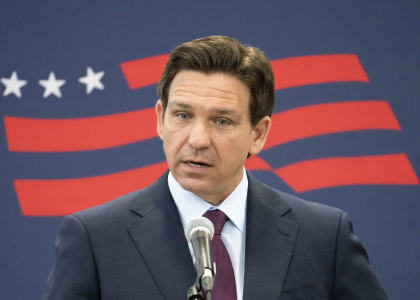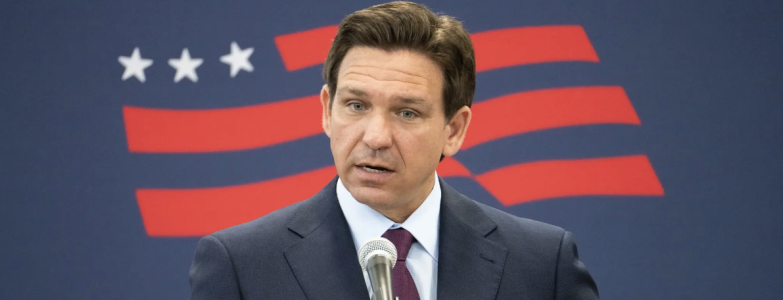President Joe Biden is contemplating new tax hikes aimed at high-income families to finance the second phase of his multitrillion-dollar infrastructure plans, according to people familiar with the discussions, Politico reported Monday, April 19.
The new set of proposals needed in order to meet the cost of a spending package focused on infrastructure investments in the so-called care economy is likely to be much more contentious than the battle over corporate taxes — among lawmakers at least, Megan Cassella and Brian Faler write for Politico.
Republicans who strongly argued against corporate taxation, are expected to dig in even deeper to fight higher taxes on wealthy families. And although polls show Americans’ support for infrastructure investments increases when they learn it could be paid for by taxing wealthy families, Centrist Democrats from high-cost areas may be hesitant to support new tax hikes on households. President Biden promised he won’t raise taxes on those earning less than $400,000.
Like a ‘Game of Thrones’ battle
Cassella and Faler argue the case that the battle in Congress “will mirror long-simmering divides in the public over how much the wealthy should pay in taxes, whether it’s a good idea to greatly expand the size of the government, and how much Washington’s trillion-dollar deficits matter. Those debates have only grown louder after a year in which the worst economic crisis since the Great Depression fell heavily on middle- and lower-income earners, while wealthier Americans have actually come out ahead. The uneven impact, which some economists have termed a ‘K-shaped’ recovery, has fueled arguments around fairness in the tax code and other societal structures.”
According to a recent Quinnipiac poll, President Biden receives high marks on the pandemic, low score on Mexican Border Situation, and Infrastructure Plan is more popular if corporate taxes fund it. The Quinnipiac University national poll finds that 44 percent of voters support Biden’s $2 trillion infrastructure plan — but when told it would be funded by raising taxes on corporations, that number rose 9 percentage points, to 53 percent. According to a Morning Consult poll from late March, more than half of voters support infrastructure investments funded by tax hikes for corporations and the weatlhy, compared to 27 percent of those who back the spending without new levies. When each tax hike was polled separately, voters favored increases on those making more than $400,000 more than raises for corporations.
Asked about polls indicating support for hiking taxes, Rep. Kevin Brady (Texas), the top Republican on the tax-writing Ways and Means Committee, expressed confidence that voters would see the move as detrimental to the economy: “The American public, when it is fully explained — they get it. Americans understand you can’t tax, spend and borrow your way to prosperity.”
“Support for new tax hikes includes majorities in both parties. Three in four Americans back taxes on the rich, on corporations, or both to pay for infrastructure plans — and that includes 51 percent of Republicans, a poll out Thursday from Navigator Research showed, Politico reported. Still, it remains politically difficult for some lawmakers to back individual tax hikes, and Republicans are already arguing that raising levies will destroy jobs and hurt the economy as it begins to recover,” Cassella and Faler added.
“Steep tax increases reduce incentives to work, save, invest and be productive, especially when you tax those who disproportionately invest their income in the stock market as well as new products for the economy. While it may feel good to drown the rich in taxes, the economic effects are real and negative.”
Brian Riedl, a former economic aide to Republican lawmakers who is now with the right-leaning Manhattan Institute.
“The White House could, however, structure the proposal the way it did with its first infrastructure plan, with revenue collection spread out over a longer period of time than the spending. And while moderate Democrats have emphasized a need to pay for the plans, it’s likely some deficit financing could win support,” Cassella and Faler argued.
Administration officials are “concerned about demonstrating that they’re paying for some of it,” one Democratic staffer on Capitol Hill said. “Not that they’re paying for all of it.”
Cassella and Faler state that President Biden has made clear with his first plan that he’s open to any suggestions on the best way to pay for it, as long as no new levies are imposed on families making less than $400,000 a year. And regardless of what exactly Biden proposes to finance the second plan, any tax hikes will be the subject of intense debate for months to come and may well change during negotiations on Capitol Hill.
“Tax bills are complicated,” one Democrat close to the White House said. “When you do all of this at once, it’s almost impossible.”
This is a summary of a Politico article originally published on Monday, April 19 , written by trade reporter for Politico Pro Megan Cassella, and Politico tax reporter, Brian Faler.














